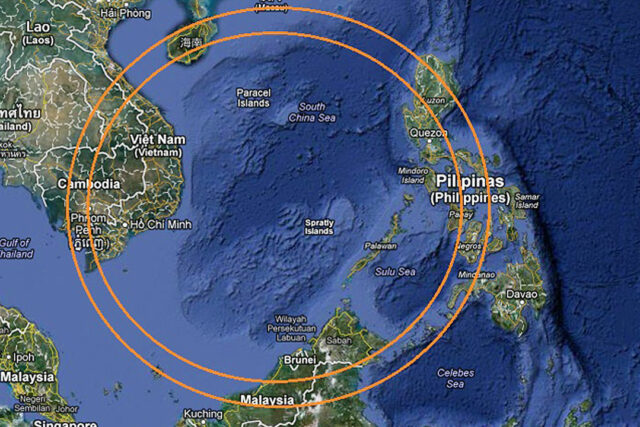An opportune time to restrategize foreign policy

Thinking Beyond Politics
Victor Andres C. Manhit

The Philippines is at a turning point in its foreign policy and national security agenda. These will be defined by the direction that the Marcos Jr. administration will take. So far, given the President-elect’s recent pronouncements, the outlook seems positive.
Addressing the long-standing concern over the West Philippine Sea (WPS), Mr. Marcos Jr. reassured the public that he would not “allow a single millimeter of our maritime coastal rights to be trampled upon.” Citing the 2016 arbitral ruling, he emphasized that WPS is “already a territorial right” and not a claim.
This is a major shift from the Duterte administration’s failed appeasement policy toward a more Philippine-centered policy agenda.
Having a clear, cohesive, and unequivocal foreign policy and national security agenda cannot be overemphasized. Lessons from the previous administration show that lack of such resulted in delays in economic growth, a slowdown in national development, and the decline of strategic autonomy.
As geopolitics and geoeconomics continue to influence the external environment of the Philippines, Marcos Jr. must set the course of our foreign and security policies to be both adaptive and resilient to potential threats and to be driven by national interests. Beyond policy pronouncements, clear and definitive actions need to be taken.
THE LOW-HANGING FRUITS: REALIZING PHL MARITIME SECURITY POTENTIAL
On May 31, the Stratbase Albert del Rosario Institute held a virtual townhall discussion titled, “The Future of Philippine Foreign Policy: On Maritime Security Capability and Strategy.” This public forum witnessed a gathering of experts and thought leaders who provided their own insights on the possible next steps for the Marcos Jr. administration.
The forum highlighted the need to synergize foreign policy with the country’s defense security posture to foster greater capability with regard to external security changes, better cooperation with key partners and allies in the region, and increased trust and confidence in governance capability.
From Duterte’s independent foreign policy, I emphasized that we lost the opportunity to harness our international political capital among countries with shared values, with those who believe in a rules-based international order. To regain our footing, Marcos Jr. will need to divert their attention to crafting a more responsive and strategic foreign policy that would implement a clear, cohesive, and consistent foreign policy direction and develop the country’s comprehensive power according to its military, economic, scientific, and cultural capabilities.
Specifically, on harnessing our maritime security strategy, Admiral Rommel Jude Ong emphasized that retaining agency over its maritime interests in the near future requires the formulation of a whole-of-government strategy, integrating the country’s foreign policy direction, its maritime defense and security posture, and its plans to harness key components of the blue economy.
In line with this is the need to develop our modernization efforts. Dr. Renato de Castro stressed that it is time to shift away from a legislative-based modernization program to one that is based on capability-driven modernization. This entails formulating a new national security strategy based on the 2016 arbitral ruling and refocusing on maritime capabilities emanating from our maritime domain.
Dr. Chester Cabalza also emphasized the need to focus on Territorial Defense Operations rather than Internal Defense Operations, which entails investing more in the Philippine Navy and the Philippine Coast Guard. He said that these defense agencies, “should maintain sovereignty patrols on the country’s maritime domains, ensuring a surface force to meet the current mission and long-term obligations, including the safeguard of sea control and denial, projecting power, maintaining maritime security, and also performing functions to support its mission other than war.”
At the international level, the Philippines also has various opportunities to not only push its defense and security potential forward but also to maximize and leverage its position in the region. In the Center for a New American Security’s report titled, “Revitalizing the US-Philippines Alliance to Address Strategic Competition in the Indo-Pacific,” the critical importance of the US-Philippines alliance goes beyond maintaining its historical and cultural ties and gears more on maintaining stability within the Indo-Pacific region.
The report emphasized two things. First, the most important aspect of the security alliance is prioritizing existing defense and security cooperation frameworks and elevating it to meet current and emerging threats in the region, including gray zone threats and potential adversarial events within the Philippines’ maritime territory. This also looks into enhancing “allied and partner capabilities and enable collective responses to regional security challenges.”
Second, and the most significantly stated in this report, the “Philippines’ relationships with US allies and partners” forms an empowered and deeper security Indo-Pacific network that supports a rules-based order in the region and encourages “further minilateral defense arrangements” that address the capability and capacity development.
These recommendations and the low-hanging fruit of opportunities cannot be ignored any longer. While the new administration is formulating its next steps, it must be able to integrate these in its policy priorities to ensure a Filipino forward approach and to secure a better roadmap toward national security and development.
Victor Andres “Dindo” C. Manhit is the president of the Stratbase ADR Institute.
